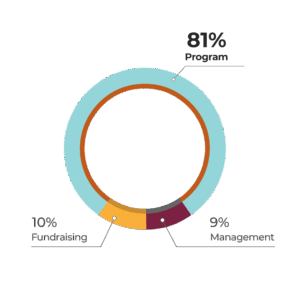Hopeless.
The child is wrapped in suffering. Constricting fear binds her chest; her thoughts vibrate with inescapable tension: Relationships only lead to pain. Trust is a figment, a lie adults use to manipulate you.
So she turns off that part of her brain, severing her ability to form those dangerous connections.
As she emotionally recedes, darker, baser mental functions surge forward.
Fight-or-flight becomes her new normal. Panic is a daily companion. There is no hope, no light at the end of the tunnel, no bright future to plan; all that matters is surviving the next five minutes, and then the next.
There is no hope. There is only survival.
Hurt

We rescue hopeless people. They don’t see their future,”
–Declan, lead EMPOWER facilitator in Uganda
Suffering sexual abuse is damaging at any age, but for children, it can affect physiological development in a way that has lasting consequences. One study demonstrated that childhood trauma was profoundly detrimental to victims’ ability to make decisions, a difficulty that actually increased as they entered adulthood. Another showed that adults who endured sexual abuse as children actually had measurable differences in their brain’s physical structure.
That damage manifests in different ways in different kids. Many suffer from anxiety or depression. Some are aggressive and belligerent. More often, we see kids closing off emotionally as they isolate themselves from others. Understandably, many have deep-seated trust issues.
As varied as those responses seem, they all stem from the same objective: self-preservation.
Normal activities—like making friends or learning something new—get pushed into the background as mental and physical survival mechanisms take over.
Addressing that hopelessness takes time. Our caseworkers have noted that the trauma of prolonged abuse is not something that can end in a few months or a few years—that the healing process has no timetable.
With that in mind, these patient caseworkers take things slowly.
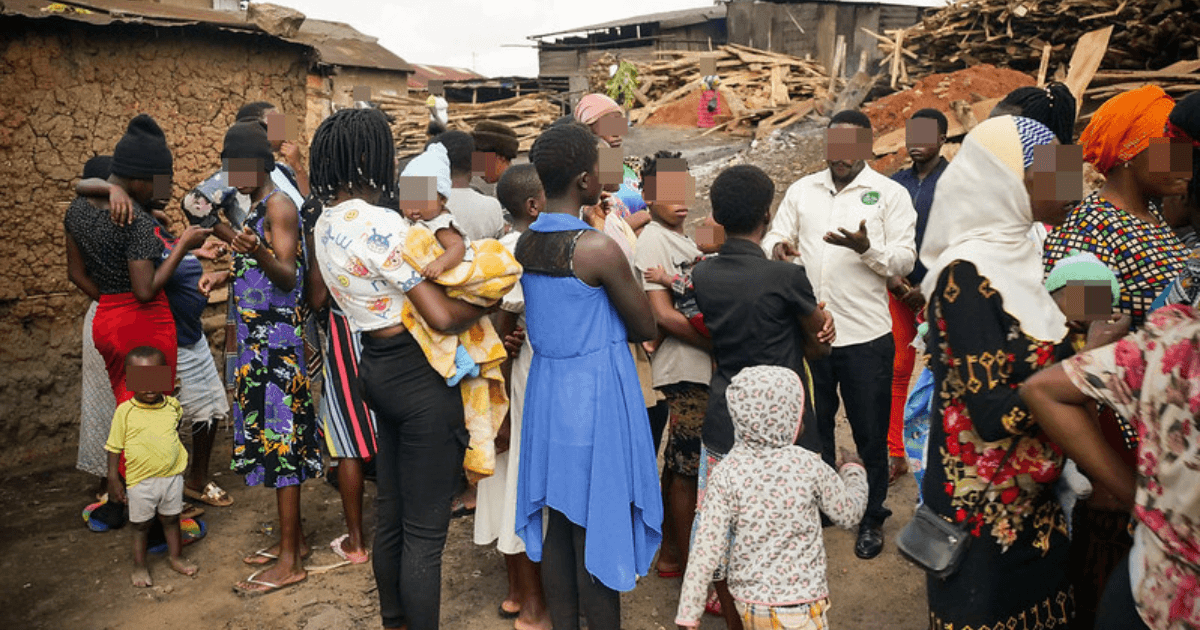
A group gathers to learn about Destiny Rescue’s services in a community in Uganda
Maneuvering through adversity
Our teams have found that a crucial first step in moving beyond traumatic experiences is taking some time to acknowledge them. “We give them a listening ear without judging them,” a caseworker in Kenya said.
“We let them release it out on us,” Kioni, our current project director there, added.
In group discussions with other survivors, the kids come to realize that they’re not alone in what they’ve felt and endured. They practice breathing exercises to manually reduce the deep-seated survival responses (like panic) that can mentally cripple them.
EMPOWER trauma resilience training teaches children how to move forward in life. The multi-week program isn’t meant to act as a fast track to recovery; instead, it helps kids maneuver through the trauma. In finding a way forward, they discover that they don’t have to be paralyzed by what they’ve endured. It’s an important step in regaining control.
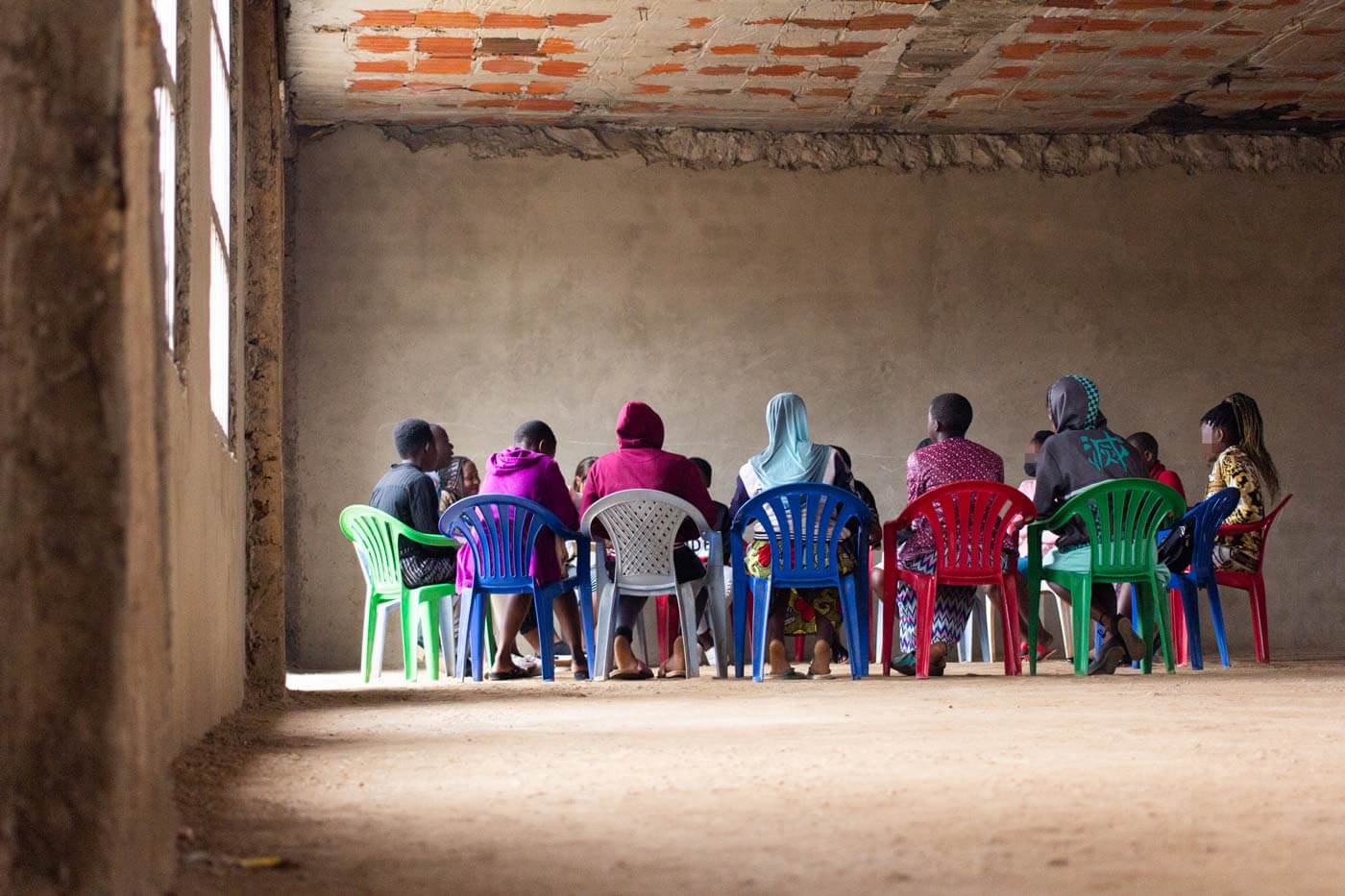
A group of children gather for EMPOWER trauma resilience training
For hurting children, it’s like unlocking a door to endless possibilities.
Gaining confidence
Stepping through that door can be a challenge.
Survivors often believe the lie that their worth isn’t based on anything they do or think, but on whatever money their bodies can earn. It takes bravery and confidence to pursue new possibilities in life, confidence that most children don’t have at the time of rescue.
Fortunately, they have some stellar examples to follow.
Survivors in our care are surrounded by people who act nothing like what they’ve come to expect. Male rescue agents and caseworkers are kind, gentle father figures, often cheerfully teaching the kids team sports or unabashedly leading dance sessions. They’re nothing like the selfish, cruel figures who preyed upon their desperation.
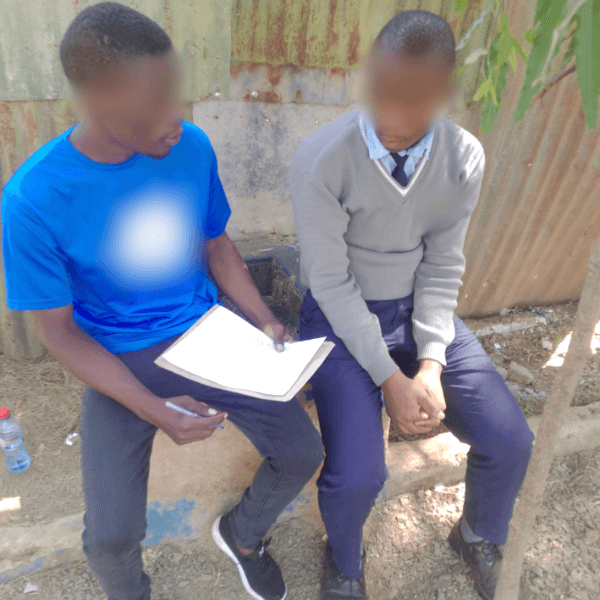
But oftentimes, it’s the women who surprise survivors the most.
Female caseworkers aren’t defeated or frightened. Instead, kids see women who confidently work side-by-side with their male teammates. They guide the children without being manipulative and show compassion without appearing weak. They aren’t afraid to smile or laugh or take risks. For traumatized girls, their caseworkers are beacons in the storm, a clear, present hope for a life they couldn’t imagine before.
As a trafficking survivor herself, Kioni stands as a living example of the potential that survivors can aspire to achieve. The leader speaks into survivors’ lives from experience, not only relating to what they’ve endured, but demonstrating what they can become.
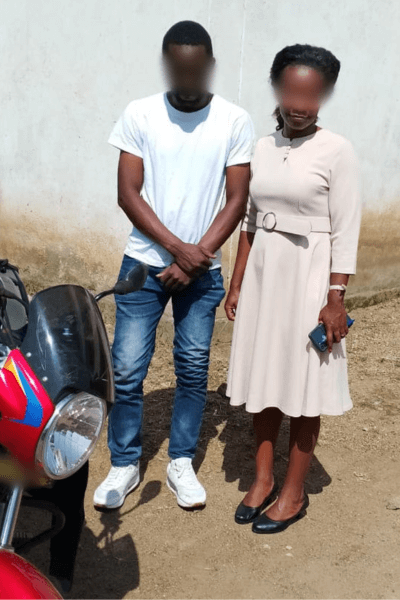
Kioni and Kikara, another rescue agent
She often compares trauma to a venomous snake when she talks to the kids. Her determination to overcome inspires survivors and caseworkers alike. “We are not going to let that snake bite us again,” she said, speaking of how caseworkers deal with second-hand trauma. “We are going to move on in life, and this makes us happy as people.”
Finding a way forward
That example continues even as children start learning how to achieve financial independence.

We are blessed with trainers that speak of their own lives, give of their own time, and really not just train them in hairdressing or catering, but really speak into their lives as well,” Taraji, our project coordinator in Zimbabwe, said.
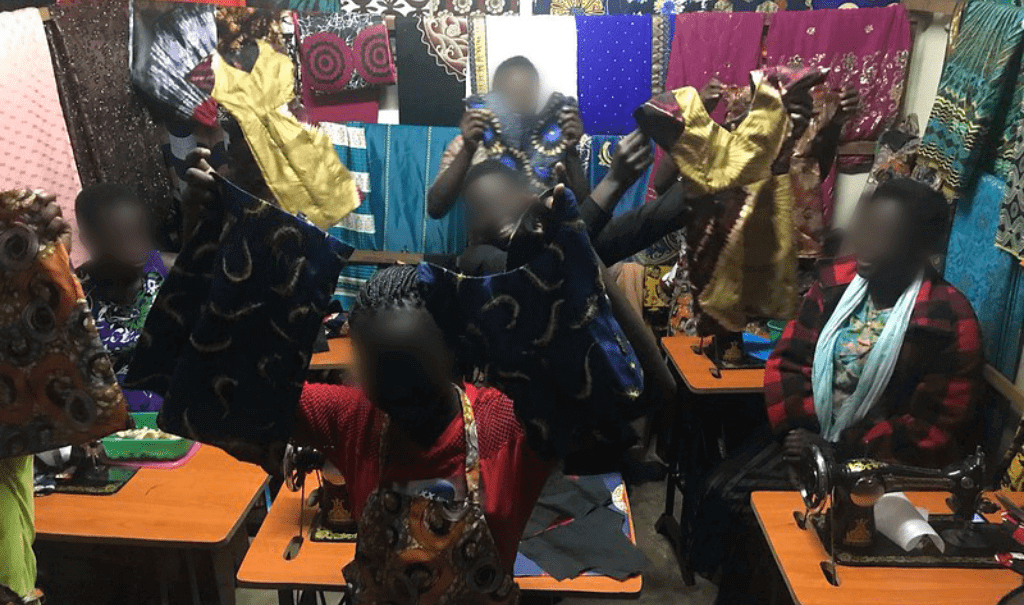
Smiling survivors in Uganda show off their work during tailoring training
Seeing children come out of their shells is a unique joy for our caseworkers. Faces that once seemed incapable of smiling now light up a room. Kids who once acted years older than they actually were now laugh and dance with other children. Girls who once sat alone and secluded chat with customers in their very own small businesses.
Survivors aren’t just learning to cope; they’re learning to excel in unpredictable circumstances. Kids aren’t just learning to survive; they’re learning to hope again.
If you’d like to help bring hope to the hopeless, please fill out the form below. Your gift can help save a child not only from sex trafficking, but from the terrible bonds of trauma. Fill out the form below to rescue a child today.
Donate with confidence
Over the last three years, 81% of every dollar we spent was used for programs that benefit the children we defend.
Destiny Rescue is recognized by Guidestar, Charity Navigator, the Better Business Bureau and Excellence in Giving for our commitment to transparency, accountability and financial integrity.
We are grateful for your generosity and promise to use your donation in the most effective way possible. All donations designated for specific funds will be applied to those projects and to administering the gifts. At least 80 percent of your designated gift will go to programs that defend kids. Gifts that cannot be used for a particular project, due to over or under-funding, will be directed to Destiny Rescue’s most urgent needs. Contributions are solicited with the understanding that Destiny Rescue has control over the use of all donated funds.


 Australia
Australia New Zealand
New Zealand United Kingdom
United Kingdom


